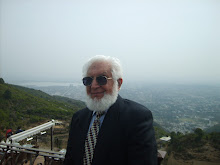Here are somepoints I learnt from today's Jumáh Khutba with some of my own additions:
There is a Hadeeth of the prophet S. that a companion came to ask him for advice.
He told him, "Do not be angry".
The man repeated, "and then some more advice"
He S. repeated, "Do not be angry" and third time the same.
It is possible that man needed to control his anger, so the advice for him was the same.
But really speaking the Prophet S. has given excellent advice for the control of anger which btw is a useful emotion to defend yourself against the enemy.
We are, however, cautioned, "Not to exceed, in retaliation." Anger is likely to drive us to excess and it is very easy to to cross the limits in anger.
There are other directions from that great teacher, Muhammad S.
Say Aóozdubillahi minash-shatanir-rajeem.
Sit down if standing
If not better, lie down
Drink a little water.
(I have given you main helpful points from sayings of the prophet S.)
Yes, of course today the psychologists tell us all such things for anger management but they cannot tell us about "Taáwwuzd" or why we should drink water etc.
A continuous state of anger is however more damaging and likely to destroy relationships, may ruin love and respect, may dismantle or disintegrate a family. In addition it consumes the mental and psychological energy of the individual carrying this undefeated mood of anger and generate all sorts of neurotic and unbecoming behavior. When the opportunity or the means to combat or negate the anger feeling are not available, it is best to listen to Qurán again
" Those who believe and whose hearts find satisfaction in the remembrance of Allah; for without doubt, in the remembrance of Allah do hearts find satisfaction. (Sura 13, aya 28)
" Zdikr" is more than just remembrance, I woul like you to realize and ''satisfaction'' is a poor equivalent of what we in Urdu call "Itmeenaan -e- Qalb".
Listening to Qurán itself or reciting of Qurán by itself is also Zdikr and will provide that ''satisfaction of heart''.
There is a Hadeeth of the prophet S. that a companion came to ask him for advice.
He told him, "Do not be angry".
The man repeated, "and then some more advice"
He S. repeated, "Do not be angry" and third time the same.
It is possible that man needed to control his anger, so the advice for him was the same.
But really speaking the Prophet S. has given excellent advice for the control of anger which btw is a useful emotion to defend yourself against the enemy.
We are, however, cautioned, "Not to exceed, in retaliation." Anger is likely to drive us to excess and it is very easy to to cross the limits in anger.
There are other directions from that great teacher, Muhammad S.
Say Aóozdubillahi minash-shatanir-rajeem.
Sit down if standing
If not better, lie down
Drink a little water.
(I have given you main helpful points from sayings of the prophet S.)
Yes, of course today the psychologists tell us all such things for anger management but they cannot tell us about "Taáwwuzd" or why we should drink water etc.
A continuous state of anger is however more damaging and likely to destroy relationships, may ruin love and respect, may dismantle or disintegrate a family. In addition it consumes the mental and psychological energy of the individual carrying this undefeated mood of anger and generate all sorts of neurotic and unbecoming behavior. When the opportunity or the means to combat or negate the anger feeling are not available, it is best to listen to Qurán again
" Those who believe and whose hearts find satisfaction in the remembrance of Allah; for without doubt, in the remembrance of Allah do hearts find satisfaction. (Sura 13, aya 28)
" Zdikr" is more than just remembrance, I woul like you to realize and ''satisfaction'' is a poor equivalent of what we in Urdu call "Itmeenaan -e- Qalb".
Listening to Qurán itself or reciting of Qurán by itself is also Zdikr and will provide that ''satisfaction of heart''.

No comments:
Post a Comment